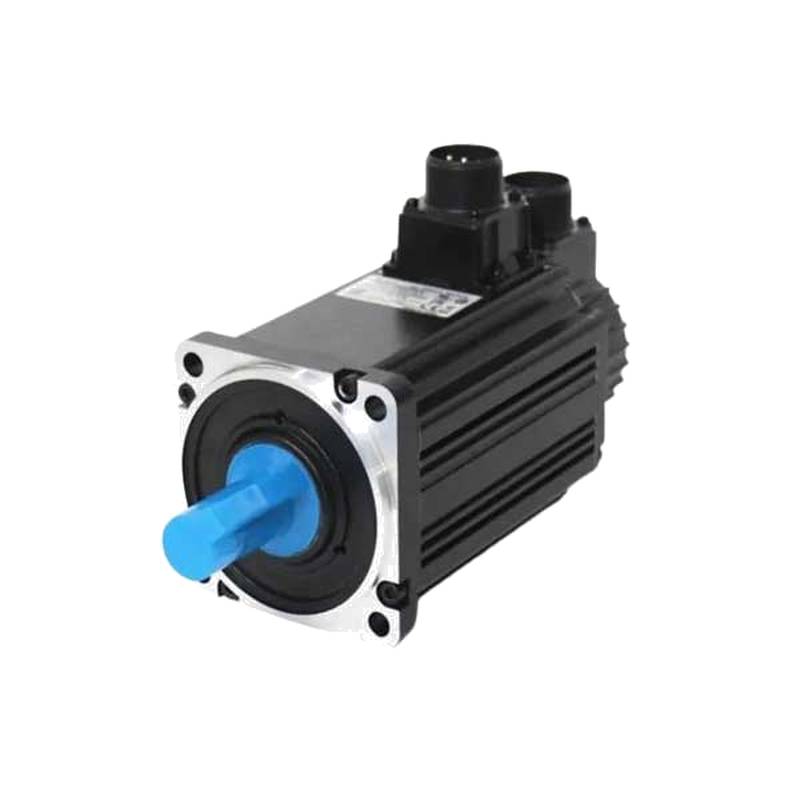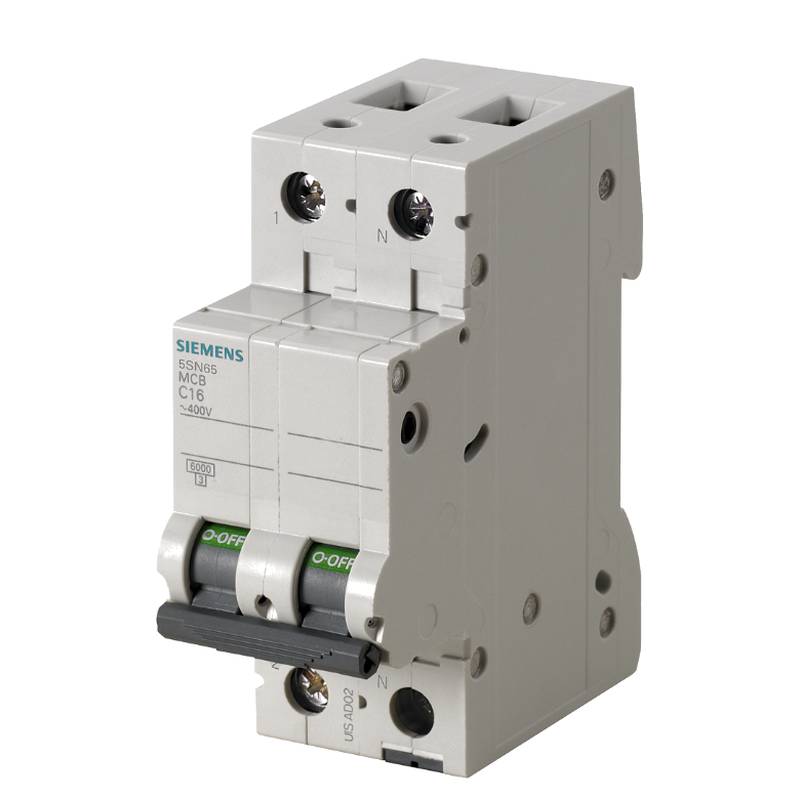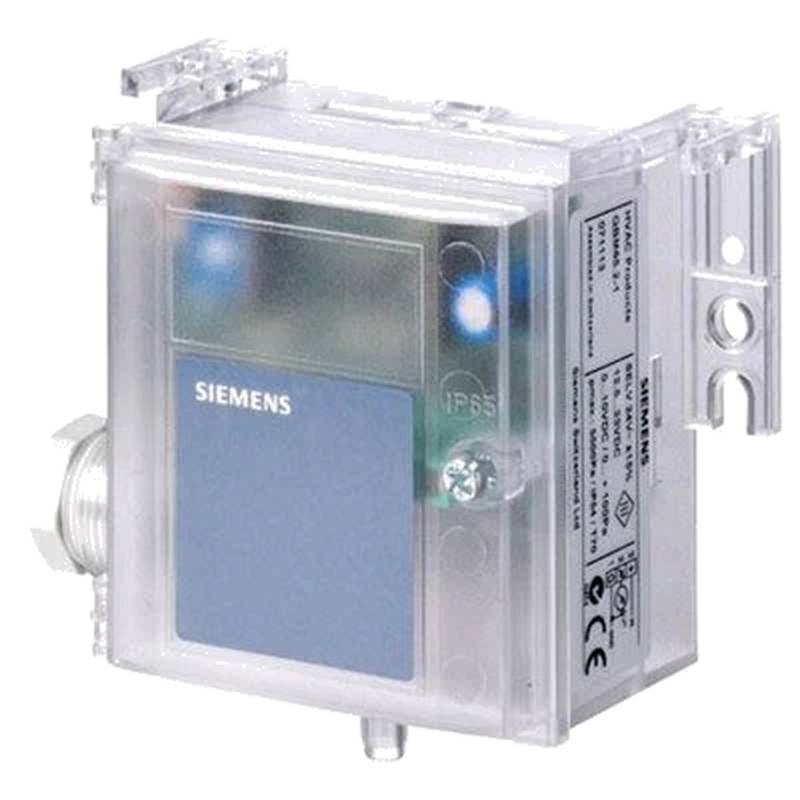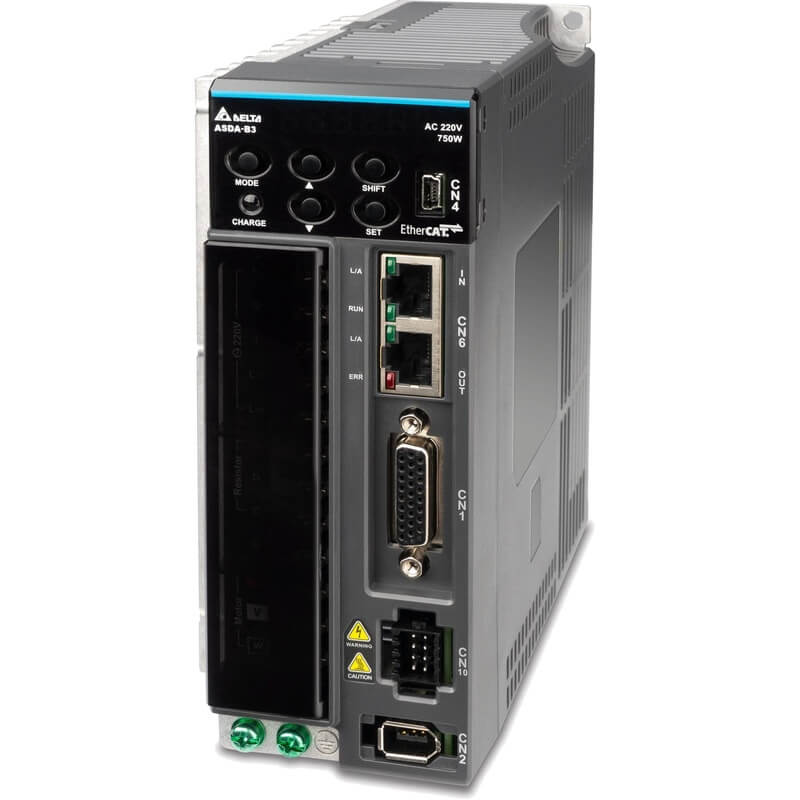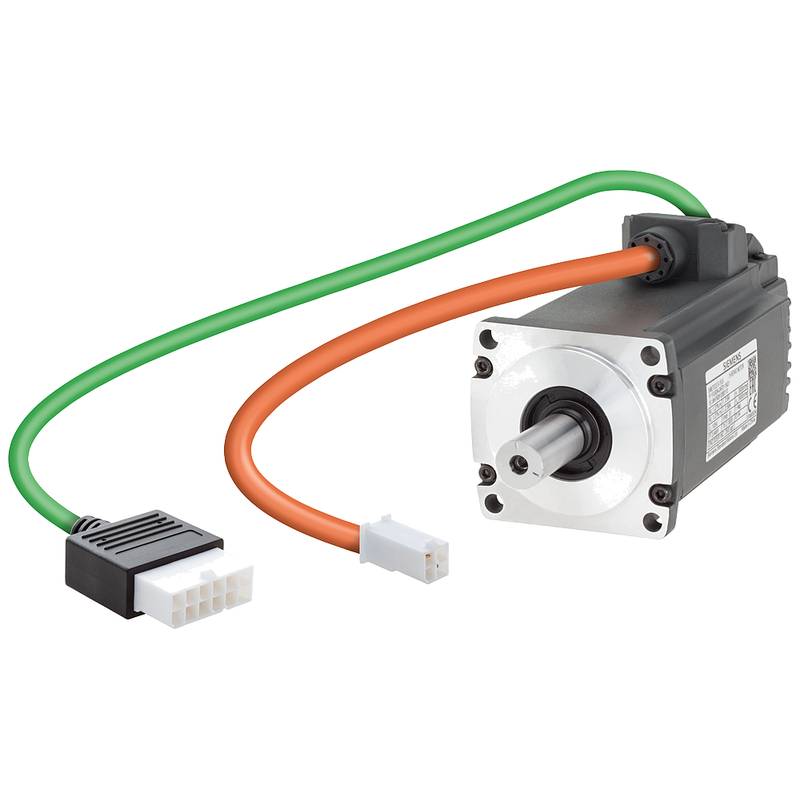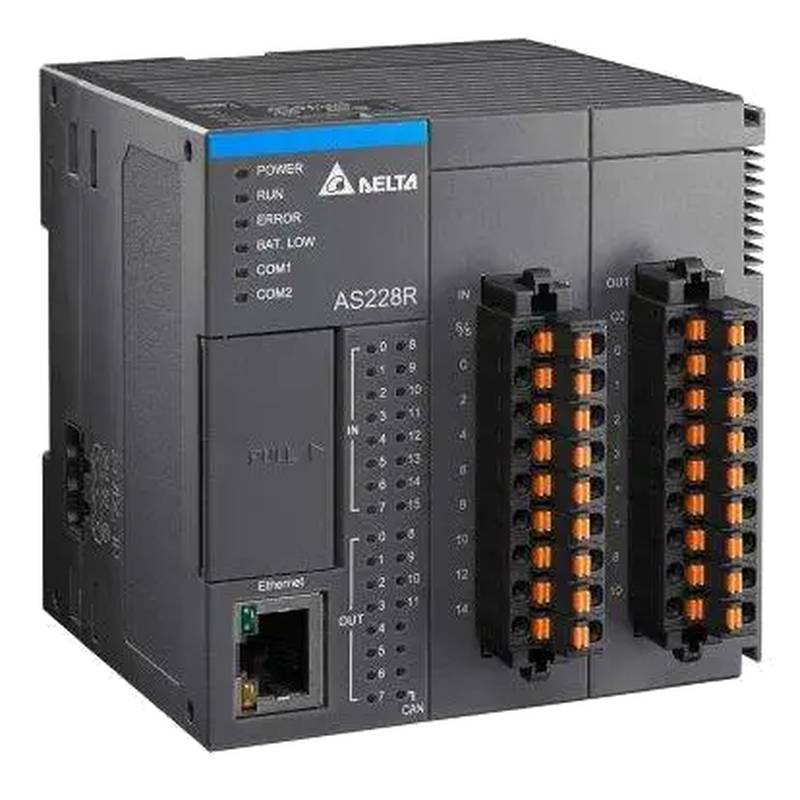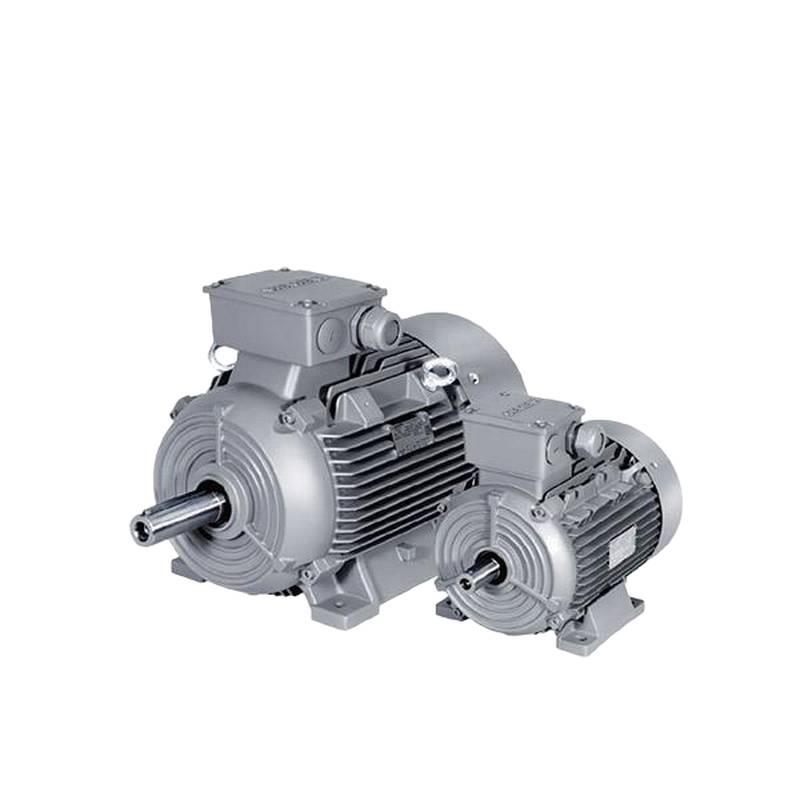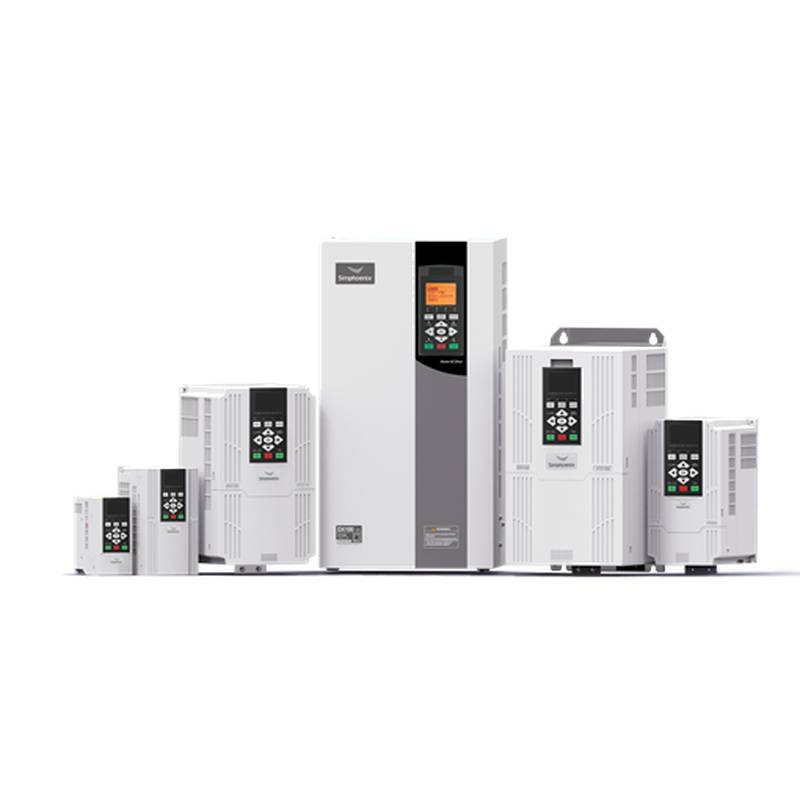
The Delta ECM-B3M-E21320RS1 medium inertia servo motor offers robust performance for demanding industrial automation tasks. This servo motor excels with its high torque density, precise positioning capabilities, and efficient operation. Key technical specifications include a rated voltage of 200V, a rated output power of 1.5kW, and a maximum speed of 3000 RPM. Its medium inertia design strikes an optimal balance for applications requiring rapid acceleration and deceleration without compromising stability. The motor features an integrated encoder for accurate feedback and comes with a standard protection rating of IP65, ensuring durability in challenging environments.
Core Features & Market Positioning
Delta's ECM-B3M-E21320RS1 is positioned as a high-value solution for automation integrators and machine builders seeking reliable and precise motion control. It distinguishes itself through its robust construction, adherence to international standards, and seamless integration with Delta's broader automation ecosystem, including servo drives and PLCs. The motor's efficient design contributes to reduced energy consumption, aligning with industry trends towards sustainable manufacturing. Competitive advantages lie in its cost-effectiveness without sacrificing critical performance metrics such as torque ripple and positional accuracy, making it a preferred choice for applications where precision and reliability are paramount.
Key Application Scenarios
This medium inertia servo motor is ideally suited for a wide array of industrial applications. It is commonly employed in packaging machinery, where its speed and precision are crucial for high-throughput operations. In the electronics manufacturing sector, the ECM-B3M-E21320RS1 is utilized for pick-and-place machines and automated assembly lines demanding sub-millimeter accuracy. Textile machinery benefits from its consistent torque delivery for fabric handling and processing. Furthermore, it finds application in CNC machining centers for axis drives, as well as in robotic arms requiring dynamic and accurate movements.
Practical System Integration Guidance
Integrating the Delta ECM-B3M-E21320RS1 servo motor into existing systems is streamlined due to its standard mounting dimensions and common electrical interfaces. The motor typically connects to Delta's ASD-B series servo drives, ensuring full compatibility and optimized performance. Wiring involves connecting the power leads and the encoder feedback cable. For commissioning, servo drive parameters such as motor gain, inertia, and limit settings must be configured according to the specific application requirements. Delta's software utilities facilitate parameter tuning and system diagnostics, simplifying the setup process for engineers.
Operation and Risk Mitigation
Safe operation of the Delta ECM-B3M-E21320RS1 servo motor mandates adherence to proper electrical grounding and mechanical mounting procedures. Ensure that the motor is securely fastened to prevent vibration-induced failures. Overloading the motor beyond its rated torque or speed can lead to overheating and premature failure; always consult the motor's datasheet for operational limits. Common troubleshooting involves checking encoder connections for signal integrity and verifying that servo drive parameters are correctly set. Fault codes displayed on the connected servo drive provide diagnostic information for rapid issue resolution.
Scalability & Long-Term Value
The Delta ECM-B3M-E21320RS1 offers excellent scalability, allowing for the addition of more motors to expand automation capabilities as production needs grow. Its compatibility with various Delta servo drives ensures that existing control infrastructures can be leveraged, minimizing upgrade costs. For forward-thinking integrators, this motor can be integrated into Industrial Internet of Things (IIoT) frameworks, enabling remote monitoring, predictive maintenance, and data analytics for enhanced operational efficiency and longevity. This future-proof design ensures long-term value and adaptability to evolving industry demands.
Frequently Asked Questions
What are the main advantages of the Delta ECM-B3M-E21320RS1?
It offers high torque density and precise motion control capabilities. Its robust construction ensures reliable operation in industrial settings. The motor also provides efficient energy usage, contributing to operational cost savings.
The ECM-B3M-E21320RS1 is built for demanding applications requiring consistent performance. It integrates well with Delta's automation products for a cohesive system solution. Its medium inertia design balances responsiveness with stability for diverse tasks.
This servo motor features a high-resolution encoder for accurate feedback and position sensing. It is designed for longevity and minimal maintenance under continuous operation. The IP65 rating protects against dust and water ingress.
How does the medium inertia design benefit this servo motor?
Medium inertia allows for rapid acceleration and deceleration cycles. This is crucial for applications like pick-and-place or packaging. It strikes a balance between responsiveness and the ability to maintain stability.
This design prevents excessive overshoot during rapid movements, enhancing positional accuracy. It is ideal for machines that require frequent, dynamic adjustments. The motor can handle moderate loads effectively with good dynamic response.
The ECM-B3M-E21320RS1's inertia is optimized for versatility across various automation tasks. It offers a good compromise for applications not requiring extremely low or high inertia characteristics. This makes it a widely applicable choice.
What are typical torque specifications for the ECM-B3M-E21320RS1?
The motor provides a rated torque suitable for continuous operation within its power limits. Peak torque is significantly higher, enabling it to handle transient load demands. Consult the product datasheet for exact values.
Its torque ripple is minimized, ensuring smooth operation and reduced vibration. This is critical for high-precision manufacturing processes. The consistent torque delivery aids in maintaining steady motion.
The motor's thermal design allows for sustained torque output without overheating. This ensures reliability during extended operational cycles. Proper drive parameterization maximizes available torque.
What is the power rating of the Delta ECM-B3M-E21320RS1?
This servo motor has a rated output power of 1.5kW. This power level is suitable for a range of medium-duty industrial automation tasks. It enables efficient operation for its intended applications.
The motor's power rating ensures it can deliver sufficient torque at its specified speeds. This makes it a capable component for driving various machine axes. It is designed for efficient energy conversion.
The 1.5kW rating strikes a balance between performance and energy consumption. This makes it an economically viable choice for many automation projects. It meets the needs of common industrial machinery.
What type of encoder feedback does the ECM-B3M-E21320RS1 use?
This servo motor utilizes an integrated encoder for precise position and speed feedback. The encoder provides high-resolution data to the servo drive. This ensures accurate control of motor movements.
The encoder is crucial for closed-loop control systems, enabling real-time adjustments. It allows the servo drive to monitor and correct the motor's position. This leads to superior accuracy and repeatability.
The specific encoder type offers robust performance in industrial environments. It is designed for reliability and long operational life. This ensures consistent feedback data for optimal system performance.
Can this servo motor be used with third-party servo drives?
While designed for Delta servo drives, some users may integrate it with compatible third-party drives. This requires careful matching of electrical specifications and encoder protocols. Compatibility verification is essential.
Using it with non-Delta drives may lead to suboptimal performance or require extensive configuration. Potential issues include drive-tuning difficulties and reduced accuracy. Official support is typically limited.
For guaranteed performance and ease of integration, using it with Delta ASD-B series drives is highly recommended. This ensures full functionality and access to support. It simplifies system setup and diagnostics.
What is the maximum speed of the ECM-B3M-E21320RS1?
The Delta ECM-B3M-E21320RS1 has a maximum operating speed of 3000 RPM. This speed is suitable for applications requiring quick movements. It enables high throughput in many automated processes.
Operating consistently at maximum speed depends on load conditions and drive configuration. Ensure the application does not exceed safe operating limits. Proper thermal management is also key.
This speed capability allows for efficient operation in tasks like conveyor control or rapid positioning. It contributes to the overall productivity of automated machinery. Always adhere to recommended operational ranges.
What environmental conditions is this motor rated for?
The ECM-B3M-E21320RS1 features an IP65 protection rating. This means it is dust-tight and protected against low-pressure water jets. It is suitable for use in many industrial environments.
This rating ensures protection against common contaminants found on factory floors. It allows for easier cleaning and maintenance in dusty or washdown areas. However, it is not submersible.
Operating temperature and humidity ranges are also specified in the product manual. Adhering to these environmental parameters is crucial for optimal performance and longevity. Avoid extreme conditions.
How is the Delta ECM-B3M-E21320RS1 commissioned?
Commissioning involves connecting the motor to a compatible Delta servo drive. Parameters such as motor identification, gain settings, and limits are then configured via the drive's software. Auto-tuning features can simplify this process.
Accurate motor data, including inertia and winding resistance, must be entered or auto-detected. This ensures the servo drive can accurately control the motor's behavior. Proper parameterization is key to performance.
System integration also requires correct wiring of power and feedback cables. Initial setup should include safety checks and basic motion tests. Following Delta's commissioning guidelines is advised.
What are the key benefits of using Delta automation components together?
Using Delta components together ensures seamless integration and optimal performance. The system is designed for compatibility, reducing setup time and troubleshooting efforts. It leverages optimized communication protocols.
This integrated approach provides unified control and monitoring capabilities. Delta's software tools often support a holistic view of the automation system. It simplifies system design and maintenance.
Furthermore, purchasing a complete Delta solution often comes with better support and warranty coverage. It streamlines the procurement process for machine builders. This leads to a more reliable and efficient automation solution.














